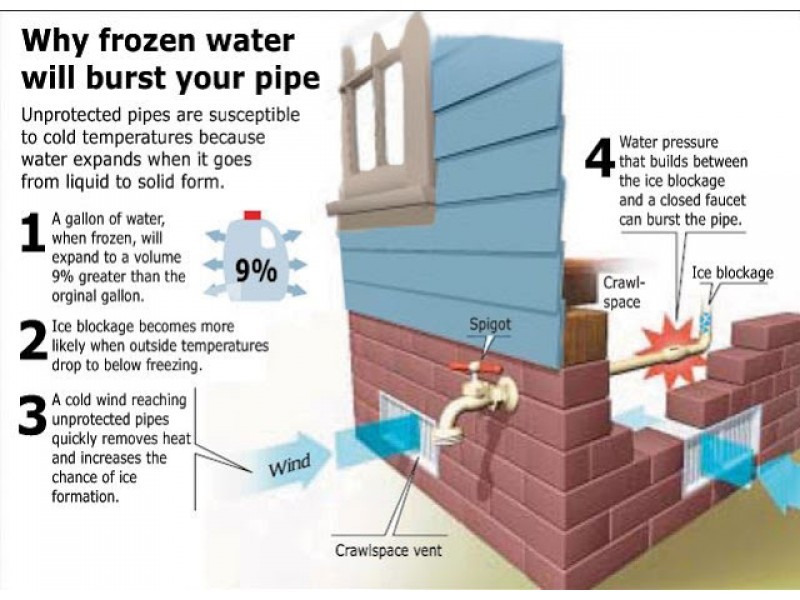With temperatures in the single digits, frozen pipes can become a real problem for homeowners unless they are prepared. First lets look at why frozen water can burst your pipes with this diagram:

Frozen pipes often occure because of quick drops in temperature, poor insulation or thermostats being set to low. But there are a number of preventative steps you can take to keep your pipes from freezing:
- Check the insulation of pipes in your home’s crawl spaces and attic. Exposed pipes are most susceptible to freezing.
- Heat tape or thermostatically controlled heat cables can be used to wrap pipes. Be sure to use products approved by an independent testing organization, such as Underwriters Laboratories Inc., and only for the use intended (exterior or interior). Closely follow all manufacturers’ installation and operation instructions.
- Seal leaks that allow cold air inside near where pipes are located. Look for air leaks around electrical wiring, dryer vents, and pipes, and use caulk or insulation to keep the cold out. With severe cold, even a tiny opening can let in enough cold air to cause a pipe to freeze.
- Use an indoor valve to shut off and drain water from pipes leading to outside faucets. This reduces the chance of freezing in the short span of pipe just inside the house.
- A trickle of hot and cold water might be all it takes to keep your pipes from freezing. Let warm water drip overnight, preferably from a faucet on an outside wall.
- Keep your thermostat set at the same temperature during both day and night. You might be in the habit of turning down the heat when you’re asleep, but further drops in the temperature – more common overnight – could catch you off guard and freeze your pipes.
- Open cabinet doors to allow heat to get to un-insulated pipes under sinks and appliances near exterior walls.
Taking these steps can help to prevent frozen and breaking pipes causing further damage to your home.

